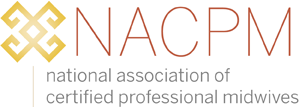Congratulations to South Dakota! Governor Signs Bill to License CPMs
On March 1st, to the great joy of families across South Dakota, the state House of Representatives passed SB136 to license and regulate Certified Professional Midwives by a vote of 52-16 – exactly 25 years to the day when a baby boy was born at home while his father was recovering from an accident in the hospital. After the birth, the mother and baby visited the father in the hospital, hospital personnel heard of the home birth, sparking a decades-long quest by the SD Department of Health to shutter the practice of all non-nurse midwives in the state.
On March 10th, Governor Dennis Daugaard signed the bill into law which will go into effect on July 1, making South Dakota the 30th state to establish a path to licensure for CPMs and adding to the growing number of states benefitting from aligning their legislation with the US MERA agreements. With the $20,000 needed to fund the midwife regulatory board already in hand, thanks to the generosity of SD families, and the development of legislative rules about to begin, it is expected that the first CPMs will be licensed in South Dakota within a year.
The first bill to license direct-entry midwives in South Dakota was introduced in 1994. In 1995, after giving birth to her 4th child at home, Debbie Pease joined the SD Safe Childbirth Options – which later became South Dakota Birth Matters, a coalition of concerned families advocating for access to midwives. Over the next 22 years Debbie held various board positions, including Chair and currently Secretary, and has been the lobbyist for the group since 2009.
This legislative success is a story of extraordinary dogged perseverance, with advocates introducing a total of 33 bills over 25 years to expand and protect birth options for South Dakota families – including 9 licensure bills and 22 others to keep women, babies, families and midwives on the legislature’s radar. “The timing was good this year”, Debbie told NACPM. A combination of decades of showing up every year to educate lawmakers, having several prime sponsors positioned on key committees of jurisdiction, a sense in the legislature that “these people deserve to make progress” after all their years of hard work, and aligning the bill with US MERA agreements to overcome contention about the education of CPMs, paid off. “It was a many-year strategy to wear down the opposition”, Debbie said, “and it worked! Every relationship you make takes you one step closer to your goal.”
Congratulations to all families in South Dakota – you inspire us all!
Persistent Perseverence: MAWS Lobby Day Turns 30
Consumers, midwifery students, and midwives are often a presence in state capitols when urging action on a new state licensure bill or fighting attempts to restrict midwifery practice. But Washington State may hold the record for convening advocates proactively every year for more than 30 years in a row. The Midwives Association of Washington State (MAWS) hosts an annual Lobby Day to make sure that legislators know just how important midwives are to childbearing families and the value they bring to the maternity care system!
To learn more and see examples of supporting documents, check out the MAWS 2017 Electronic Lobby Day Packet for Legislators and the Information for Lobby Day Participants. Also available on the MAWS website is their 45 minute Lobby Day Training Webinar which prepares advocates with an overview of the legislative process, facts about the benefits of midwifery, coaching to create your own “elevator speech,” and the specifics of this year’s legislative priorities.
Priorities for families and midwives this year included asking legislators to maintain the cap on midwifery licensing fees and triple the Medicaid reimbursement rate for birth centers. Because of the clear cost savings and health benefits that licensed midwifery confers to the State of Washington as evidenced by the 2007 DOH Cost-Benefit Study, MAWS has successfully lobbied for this cap for the past 8 years. Last year, MAWS successfully lobbied for a budget proviso directing the Health Care Authority (HCA) to review its methodology for setting the Medicaid reimbursement rate for birth centers. MAWS leadership then worked diligently with the HCA throughout 2016, compiling data that went into a report sent to the legislature by the HCA in October, recommending that the Medicaid reimbursement rate for birth centers be increased to $1,742. Midwives believe that, if they are successful in getting this budget proviso passed, not only will birth centers in WA State become more viable, but midwives, birth centers, and consumers in other states will benefit, too.
In addition to the specifics regarding midwifery licensing fees and birth center reimbursement, MAWS also supported several other bills, including:
a bill requiring that employers make reasonable accommodations for pregnant workers and that hospitals be required to institute baby-friendly practices, such as skin-to-skin contact immediately after birth;
a bill to strengthen the Family and Medical Leave Act by including a mandate for paid leave;
a bill to ensure that both midwives and doulas could have access to the state’s jails and prisons to be able to provide education and support to pregnant and postpartum inmates.
READ THE ENTIRE NEWSLETTER HERE


